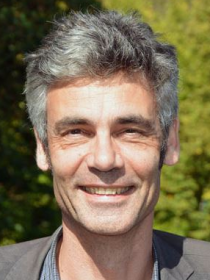Liekuut | Give young people a cultural hangout spot and a voice
In ‘Liekuut’, which is the Groningen dialect for straight ahead or straightforward, we regularly share the perspective of one of our academics on a topical issue. In this way, we show how UG researchers are contributing to the societal debate.

Young people know very well what they would like to see and hear culturally, but that is not always reflected in the programming of cultural institutions yet. According to Johan Kolsteeg, Assistant Professor of Art and board member of the Groningen Arts Council, decisions are often made for young people instead of involving them in the process.
His research shows that, above all, young people want to be heard and have a say in what is featured at a theatre, library, or music venue. This way, you can stimulate the democratization of culture and involve young people in creating suitable cultural activities.
Giving meaning to life
‘Culture is a way of giving meaning to life, especially for young people. But it is usually adults who decide what young people should see or experience despite having the best intentions. It is also important that young people engage with the canon of our culture, including our museums, classical music, and other cultural manifestations. But young people also create their own culture to give meaning to their lives. Think of gaming culture, rap and hip hop, for example, and the creativity unleashed when making videos or photos for Instagram and TikTok.’
Hangout spots as cultural incubators
‘What is important in a young person's life is a place to get together, where they can simply hang out. My research showed that young people liked the idea of a theatre with a few facilities that would provide a nice place for young people to meet. Theatres and libraries would then take over the function of youth clubs, and programmers could simultaneously listen to what is going on in the target audience and respond accordingly.
Luckily, there are also initiatives such as the Mobile Pop School (Rijdende Popschool), which goes to schools and villages with instruments and equipment to make music and rap with young people. In a three-part podcast series we will release on cultural democracy research, one of the young people put it very aptly: “In fact, there should be a cultural hangout spot for every young person in the Netherlands within a radius of 7.5 km.”’
Identity, performance pressure, and drugs
The survey of young people showed that they are happy to share what they think is important when programming these topics. ‘Young people have very different issues going on in their lives than adults, and they want to see these reflected in culture. Think about themes such as identity, safety, drugs, or the performance pressure they face at school or in their social life. So these are major topics that young people want to discuss with experts at a theme night combined with arts and culture. We see some institutions still struggling to program for young people in collaboration with them. The target group has plenty of ideas of its own and also finds it logical to be asked to contribute to any programming. Young people are also good at estimating what their peers would like to see. For example, a Dutch evening was suggested by one group in the study because they knew some peers would appreciate it. Ideally, that is how cultural democracy works: social differences are also bridged through culture.’
Future
‘As an institution, let young people experiment and take control for a change. Engage with young people as a creator and programmer. Put young people in charge of certain social networks where they can interact with each other about theatre and culture, as is currently happening in Drenthe on the Instagram account OuiWe. Structural focus on young people ultimately also sparks curiosity about what else a theatre or cultural institution has to offer. Fortunately, in Groningen, the cultural ecosystem, including for young people, is guaranteed for the next four years through the Cultural Memorandum, partly based on the advice of the Arts Council Groningen, which gives hope.’
| Last modified: | 25 November 2024 12.56 p.m. |
More news
-
12 March 2025
Breaking news: local journalism is alive
Local journalism is alive, still plays an important role in our lives and definitely has a future. In fact, local journalism can play a more crucial role than ever in creating our sense of community. But for that to happen, journalists will have to...
-
11 March 2025
Student challenge: Starting Stories
The Challenge Starting Stories dares you to think about the beginning of recent novels for ten days.
-
11 March 2025
New: Sketch Engine, tool for language research
Sketch Engine is a tool for language research, which can also be used for text analysis or text mining.
